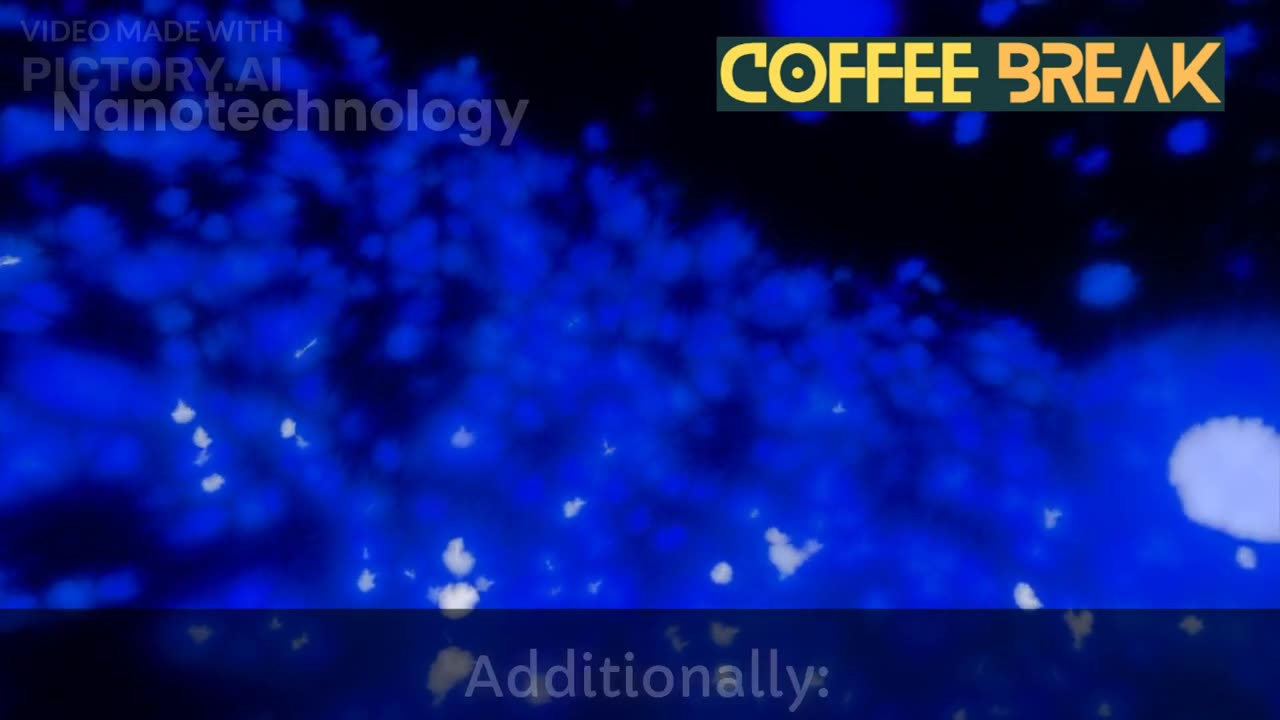Premium Only Content

What are the top Achievements of Nanotechnology
Nanotechnology, the manipulation of matter at the atomic and molecular scale, has seen some truly remarkable achievements in recent years. Here are some of the top accomplishments that are impacting lives worldwide:
Healthcare:
Targeted drug delivery: Nanoparticles can be designed to specifically target diseased cells, delivering medication directly while minimizing side effects. This holds immense potential for cancer treatment, delivering drugs across the blood-brain barrier for neurological diseases, and personalized medicine.
Bioimaging: Nanoparticles are used as contrast agents in imaging techniques like MRI and CT scans, providing clearer visualization of tissues and organs for earlier diagnosis and better treatment monitoring.
New prosthetics and implants: Nanomaterials are being used to create bionic limbs with improved functionality and compatibility with the human body. They also offer biocompatible implants for bone and tissue regeneration.
Materials Science:
Stronger, lighter materials: Carbon nanotubes and other nanomaterials offer incredible strength and durability while being incredibly lightweight. This is revolutionizing applications from aerospace and construction to sports equipment and energy-efficient vehicles.
Self-cleaning surfaces: Nanocoatings can be applied to surfaces, making them repel dirt, water, and even bacteria. This can be valuable for everything from solar panels and windows to medical devices and textiles.
Energy storage and conversion: Novel nanomaterials are being developed for more efficient solar cells, lithium-ion batteries, and fuel cells, paving the way for cleaner and more sustainable energy solutions.
Environmental Applications:
Water purification: Nanoparticles can remove contaminants and pollutants from water, providing clean drinking water for people in underdeveloped areas. They can also be used to remediate polluted water sources.
Air filtration: Nanofilters can effectively remove harmful particles and pollutants from the air, improving air quality in homes and cities.
Additionally:
Food and agriculture: Nanotechnology is being used to develop sensors for food safety and spoilage detection, improve fertilizer efficiency, and create more resilient crops.
Electronics and computing: Nanomaterials are enabling the development of miniaturized and more powerful electronic devices, leading to smaller, faster, and more efficient computers and sensors.
These are just a few examples of the many achievements of nanotechnology. As research continues, even more exciting discoveries and applications are expected in the coming years, with the potential to revolutionize almost every aspect of our lives.
Please remember that this is a rapidly evolving field, and new breakthroughs happen all the time. If you have any specific areas of interest within nanotechnology, I'd be happy to provide further information.
-
 LIVE
LIVE
The HotSeat
1 hour agoTrump Wrote History — Democrats Wrote Their Own Obituary in the First 100 Days
622 watching -
 1:44:27
1:44:27
Rebel News
3 hours ago $5.87 earnedElection fallout, Two leaders lose their seats, Canada's future | Rebel Roundup
35K27 -
 LIVE
LIVE
Right Side Broadcasting Network
5 days agoLIVE: President Trump Holds a Rally Celebrating his First 100 Days in Warren, MI - 4/29/25
10,004 watching -
 1:10:39
1:10:39
The Officer Tatum
1 hour agoLIVE Amazon EXPOSED After PROPOSED Tariff Website Feature, Canadian Election + MORE EP 97
12.2K2 -
 1:40:46
1:40:46
Russell Brand
4 hours agoIT’S WAR! Canada Elects GLOBALIST, As PM Vows To “FIGHT” Donald Trump – SF574
139K71 -
 24:25
24:25
Beach Broadcast
4 hours ago4/28/2025 - Big Vatican Comms! Holy See! JA! Trump quote "I run the country and the world"
30.7K18 -
 1:03:04
1:03:04
Timcast
5 hours agoTrump SLAMS Amazon Tariff Pricing, Billionaire WARNS Shortages Coming Ami Economic Collapse
183K152 -
 1:49:55
1:49:55
Steven Crowder
7 hours agoWhy Canada's Election Results Are A Golden Opportunity For Trump, America & Alberta
444K374 -
 46:41
46:41
The White House
5 hours agoPress Secretary Karoline Leavitt Briefs Members of the New Media, Apr. 29, 2025
74.7K24 -
 2:54:15
2:54:15
The Dana Show with Dana Loesch
4 hours agoWH BLASTS AMAZON OVER TARIFF COST DISPLAY | The Dana Show LIVE on Rumble! APRIL 29TH 2025
45.5K4